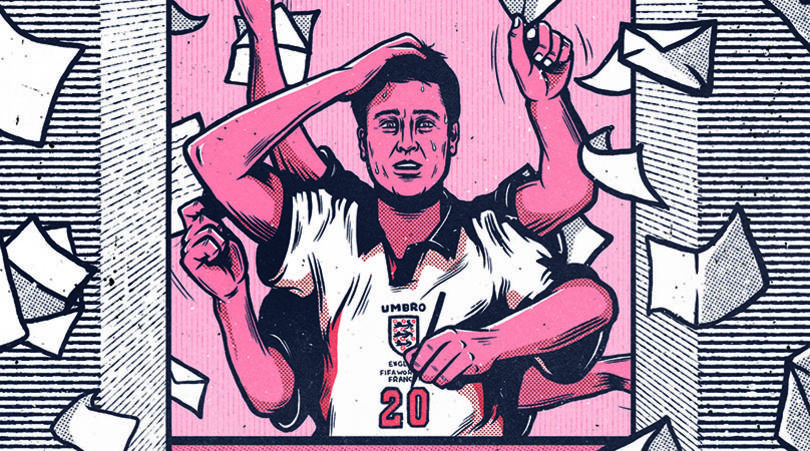Hashtag United have conquered YouTube and non-league is next: behind the scenes of a phenomenon
The club generated a global audience of fans – now they’re looking to work their way up the football pyramid. FourFourTwo meets Spencer Owen, the team and their fans
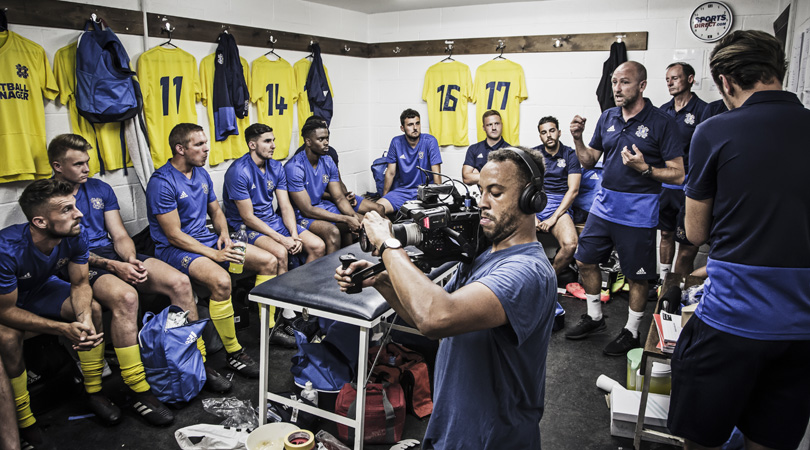
Pictures Leon Csernohlavek
James Harrington and his three sons, George, Jake and Charlie, have made a 90-minute journey from Wimbledon to Tottenham to watch a non-league football match, although dad’s not sure why they’ve bothered. “My mind just can’t process it – they’re more excited about this than an Arsenal game,” he tells FourFourTwo.
Spurs’ new stadium is only down the road, but they’re a million miles away from the Premier League. It’s 5.15pm on a Tuesday, and they’ve rocked up at a ground with one stand, turnstile and burger van. There isn’t another fan in sight, but hundreds of thousands of followers will watch highlights of the game on YouTube in the coming days.
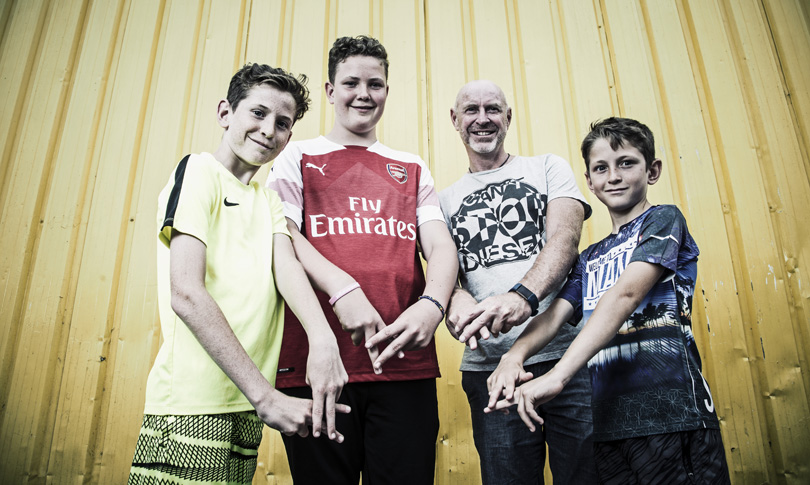
At 7.45pm, Hashtag United will play their maiden home match at Haringey Borough’s 2,500-capacity Coles Park Stadium – and only the second game in their history – against Hackney Wick in the Eastern Counties League Division One South. If you’ve never heard of them, that’s because until a few months ago they were just an exhibition side playing games against the likes of Google and Copa90, and competing in their own fictitious league formats on YouTube.
The club is the brainchild of 29-year-old YouTube star Spencer Owen. A decade ago, he began making his own video content in his bedroom while studying at the University of Reading, before launching his own football channel, Spencer FC, in 2013. Within three years he had more than one million subscribers and in 2016 created Hashtag United, an 11-a-side team made up of his mates. He aimed to film and edit their games into highlights packages, so that ordinary people could enjoy watching other ordinary people play football.
However, rather than play in a normal division, Owen decided they should compete in imaginary leagues based on computer game FIFA. Each season would be 10 games long, with Hashtag facing clubs with a similar theme, such as other Sunday League outfits or staff teams from professional clubs. His pals thought he was mad but it spawned a huge online following, particularly among a younger audience, who were drawn to this hybrid form of the game and the access it provided to the dressing room.
Social sensation
Get FourFourTwo Newsletter
The best features, fun and footballing quizzes, straight to your inbox every week.
Fast forward a couple of years and Hashtag have participated in 60 unofficial games in seven different countries, sold 34,000 tickets for a charity game at Wembley – which pitted them against Tekkers Town, another team of YouTube stars and ex-pros including Steven Gerrard and William Gallas – and amassed over 400,000 subscribers on their YouTube channel.
Their social media accounts boast more followers than most Football League sides. And their huge online audience has attracted the attention of brands like Adidas and Football Manager, who will produce and sponsor their kits for the next three seasons, and Coca-Cola, who funded the team’s US tour last year. Hashtag’s shirts will even feature on the new FIFA 19 video game.
Having conquered YouTube, Owen’s latest dream is for Hashtag to make a fairytale rise through non-league. “This gives us the chance to dream big,” he tells FFT. “We don’t want to be an anecdote and for people to say, ‘Do you remember that social media team a few years ago? I wonder what happened to them?’ We intend to be around for a long time and create a sustainable non-league club. On YouTube, we were kind of throwing our own birthday party, because it was our own creation. Now we’re a small fish in a very big pond and we’ll be the oddball of English football.”
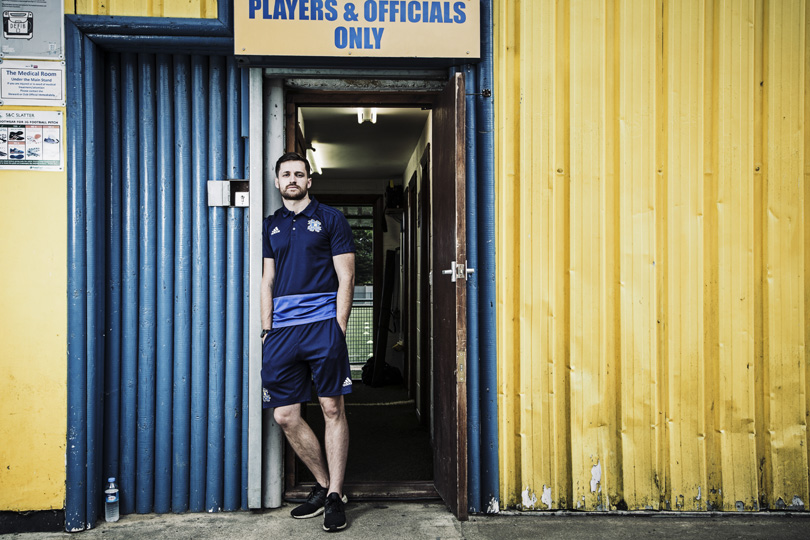
In May, he announced to his two million YouTube followers that the club would kick off their journey in the Eastern Senior League, having originally been admitted to the Spartan South Midlands Division One, hundreds of miles from the Essex base where the majority of the team reside. But the club have faced resistance from rival outfits, who claimed their arrival forced other sides out of the division.
“We were put into the wrong league, which meant another team would have been relegated, but that’s not what we wanted,” says Owen. “Now we’re in the right league and we’re one of 11 teams entering a new league structure.”
Criticism has come from traditionalists too, who’ve compared their progression with Billericay and Salford – clubs with sizeable budgets determined to climb the pyramid as quickly as possible.
“We want to be successful but our ambition isn’t to reach the Premier League in 10 years,” says Owen. “Many clubs at this level don’t have sustainable business models and rely on benefactors. Some do that well, but others throw money at it and fall apart. We don’t want that. If we’re around in five years and making a profit, I think that will be a success.”
Every penny into the club
Although Hashtag have benefited from the backing of major brands and some of the deals run into six-figure sums, Owen’s quick to dispel the myth that they’re awash with cash. “Every penny we’ve made has gone back into the club,” he says. “Our manager is remunerated but we’ve got no playing budget. The players don’t get paid, as it costs us thousands of pounds to film and edit content – other clubs don’t have these overheads.
“Without the backing of our commercial partners we wouldn’t be able to do that. We have to ensure we’re making excellent content for our online audience, who we rely on to exist. We’re trying a different model and way of running a club, by putting content first.”
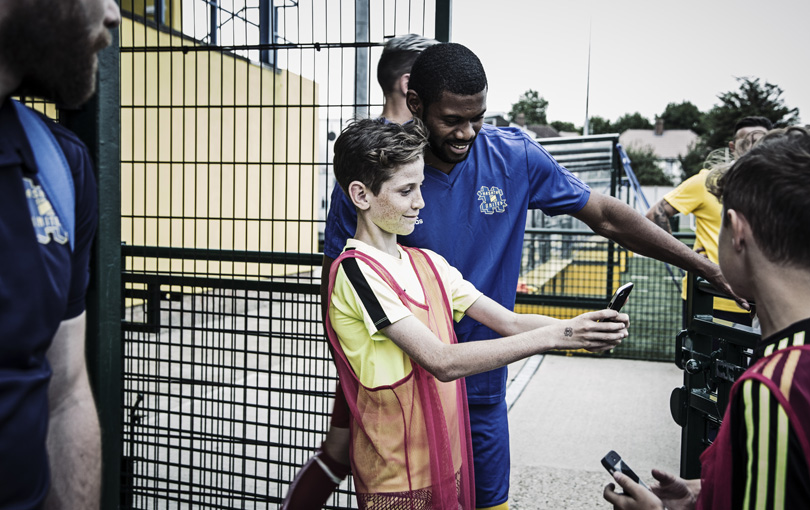
Their current approach is a reverse of a traditional football business model, with their online audience sustaining the club through colossal YouTube views and bringing in advertising revenue. And while ticket sales would normally be another essential income stream, Owen is realistic about the challenge ahead.
“Initially, we don’t expect ticket sales to be a big earner for us,” he reveals. “We hope to be one of the best-supported teams at this level, but we’ve never played regular games before – they’ve always been every few weeks, and our online audience is global. We’re not tied to a region, so we don’t know how many supporters will turn up. Our first match had the third highest attendance of any match at our level in the country, which is a great start.”
Tonight’s showdown is the talk of playgrounds across the country, and there was no chance James Harrington’s boys were going to miss out. The trio will be ball boys after winning an online competition, and are visibly excited as the first of the players and staff arrive in the car park.
Spencer’s mum, Cindy, is on turnstile duties, while dad Steve is the club’s physio. Both come over to meet the boys, who already know them by name and greet them with a family-like familiarity. They have two other sons: Seb, who is now Hashtag’s commercial director, and Saunders, who works as a Formula E presenter and is here as a fan. For Cindy, it’s a proud night. “I always told Spencer that nothing good would come of YouTube and playing video games, but he’s proved me wrong,” she says. “I’m just glad they’ve turned out to be decent lads.”
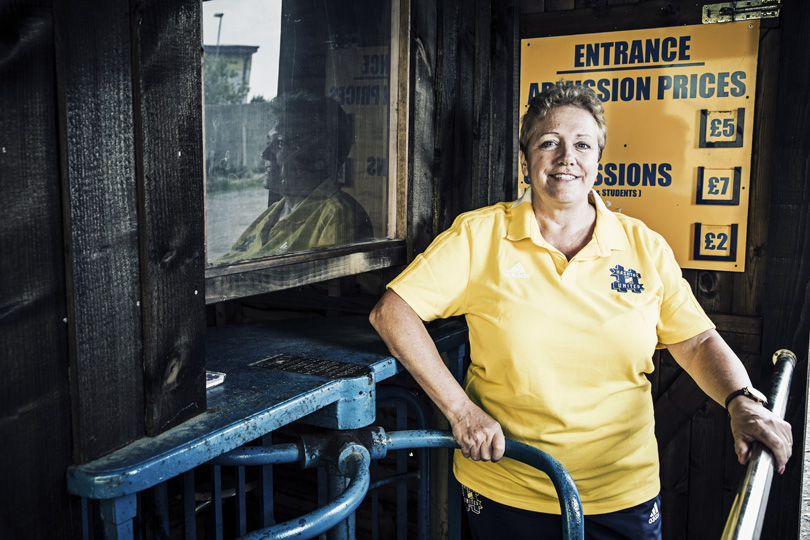
As the rest of Hashtag’s squad trickle through the players’ entrance, George, Jake and Charlie are momentarily starstruck by the guys they normally see on their laptop screens. But these aren’t big names with flashy cars and millions of pounds in the bank. Only two of the team are full-time YouTubers, while the rest are normal blokes with normal jobs.
Captain Jack Harrison works in insurance and striker Ryan Adams is a carpenter. There are also teachers and lawyers among a myriad professions. “We’re not a team of Love Islanders, we’re just a bunch of mates who love playing football,” says Owen.
Content team
Normal they may be, but their matchday routine is unlike any other in non-league or professional football. From the moment they arrive, Hashtag’s six-man content team spring into action, capturing every moment for their online audience. Operations director Neil Smythe, who spent eight years at Soccer AM before helping to launch Copa90, Manchester United fans’ channel Full Time Devils and other innovative platforms, oversees their output.
“We have to do things differently as this is 10th-tier football,” he says. “The punters don’t watch us for the skill of the players. Spencer and his squad are accessible and likeable voices. They watch us for personalities and the relationships between them. We’re offering viewers a relatable experience. You can respect Sergio Aguero and Lionel Messi, but you’ll never know them or even get their autograph.”
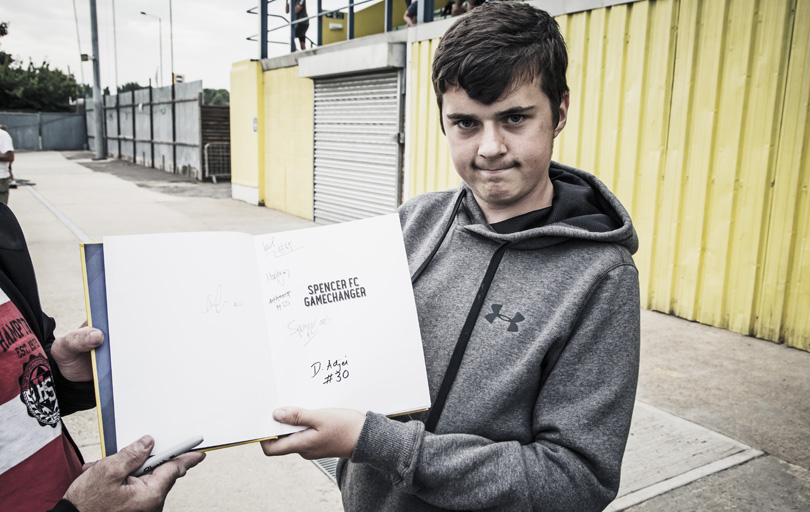
Unlike traditional match highlights, Hashtag’s coverage is a spliced offering of pre- and post-match vlogs, footage of players on the way to the game in their cars, as well as clips from inside the dressing room and match action. The format is another reason for the team’s huge popularity with younger viewers.
“My kids never watch a full 90 minutes of football any more,” admits Harrington. “If Arsenal are on TV, they’ll watch about 20 minutes and then get distracted by their iPad or smartphone. Kids now just want to see the goals, assists and skills rather than a full match, and they’ll follow individuals more than they do teams.”
The format helps Smythe and his team tell the stories of the leading characters in the Hashtag cast, and FFT spots one of them near the pitch filming a selfie video before the game.
Two years ago, Jemel Akeem decided to become a full-time YouTuber after the success of lads channel JemelOneFive, and joined Hashtag after finishing third in a series of trials aimed at unearthing new talent. “I live in Bristol and spent three hours on a bus getting here,” says the 26-year-old. “I have a five-year-old daughter so can’t play every week, but I want to play as much as I can.”

The reason for his dedication – aside from a love of the game – is the online exposure from being a Hashtag player. “After the trials, I got 15-20,000 new followers on Instagram and YouTube,” he says. Those numbers have since led to collaborations with New Balance, EA Sports and nutrition brand Healthspan Elite on various projects.
But while online fame and life in front of the camera is now second nature for Akeem, club captain Harrison is still getting his head around Hashtag’s popularity. “I’m just a 33-year-old bloke who works in insurance,” he chuckles. “After our games we get fans coming up asking us to sign autographs and have pictures with them, it’s crazy.”
Reputation on the line
It’s also a new world for Jay Devereux, who was named the club’s first ever gaffer in the summer after spending last term as assistant manager of National League South outfit East Thurrock United. “I’m putting my reputation on the line because I’m always on camera and always have a microphone attached to me,” he admits. “But the guys are professional. I’ve almost forgotten they’re there, and I’ll still speak to the players as I would if I wasn’t being filmed.”
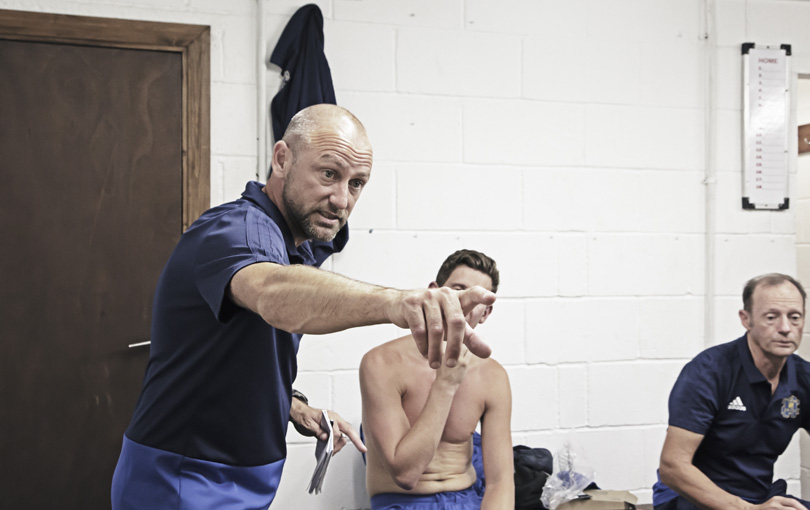
Last season, team talks were often shot more than once to ensure Hashtag’s content team captured the perfect angle, but now the club are a fully fledged team, nothing is scripted.
“The content came first – everything waited for the cameras,” says Smythe. “But I assured Jay when we appointed him that he and the team were the priority now. If the camera crew aren’t ready to film his pre-match team talk, that’s our fault.”
Devereux planned to take time out of the game to spend time with his family after leaving his last post in April. But he was convinced to return after speaking to Owen, who he’s known since the pair started filming non-league matches eight years ago. “I liked his ideas in terms of making the club sustainable,” he explains. “If he’d said he wanted to reach the Premier League in 10 years, I wouldn’t have gone for it.”
Hashtag’s switch from Sunday League to a semi-professional outfit is a delicate process. Owen has assumed commentary duties rather than playing, after admitting the step up was too much for his limited talents, while several players with non-league experience have been drafted in to bolster the squad. But he says it was important the bulk of the original side made the move from YouTube.
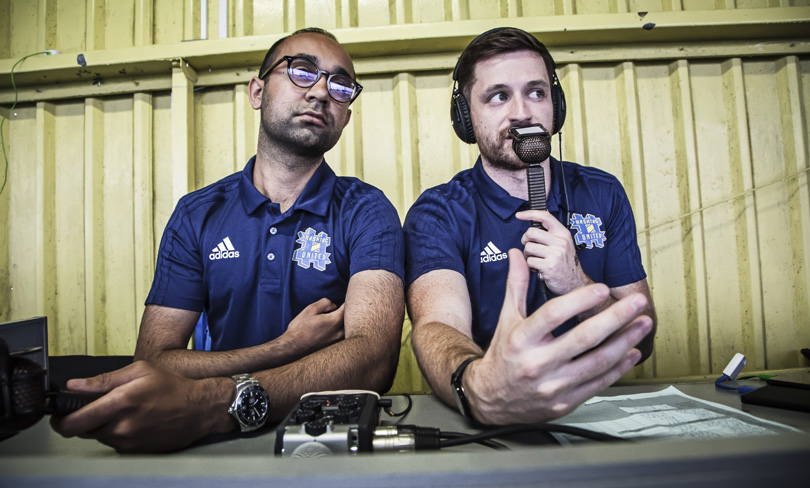
“We must continue the narrative; we can’t change a team overnight but equally we don’t want to get pumped every week,” he says. Their recruitment process also has certain caveats. “The personality side of things has to work. I’m not saying you have to have a big social media following to play for us, but the players must be comfortable with the way we work because our online audience sustains us.”
That’s part of the reason why Owen felt Devereux was the man for the job. “He knows non-league inside out but he’s also comfortable on camera. That isn’t a prerequisite for being a good boss but it’s an important part of what we do. He gets it and that’s vital.”
FFT wonders if Hashtag United will be a target for sides determined not to be turned over by a team named after a social media symbol. “I think we’re definitely a scalp in this division,” says gaffer Devereux. “Some people think we’re a moneybags club, which is wrong, and some teams will laugh at us because of our model, but there’s decent players in the squad and we’re a serious club.”
But are they actually any good? “I’ve been pleasantly surprised by the quality of the squad,” enthuses Devereux. “And there are no egos, even though some of them have big social media followings. What they lack is game know-how, and they’ll need it against more organised teams who’ve been playing semi-pro football for years.”
Progress in 2018/19
Their first game – away to Little Oakley three days earlier – ended in a 3-2 loss, but tonight’s match offers the chance for redemption. In the stands, 156 fans have assembled, and some soon spot the face of the club, Owen, and sneak a crafty picture or ask him for a selfie. He’s used to it by now.
“This isn’t a boast, but two years ago I was at this Adidas event with Gareth Bale and a group of kids ran straight past him and hugged me – I was embarrassed,” he reveals. While many here are schoolchildren, there are also jersey-wearing Hashtag supporters in their early-20s. Some of them even display the hashtag hand symbol, created by Owen on YouTube, to show their support.
The standard of football is a world away from the Premier League offerings served up to the same fans every weekend. Passes pick out the ball boys as often as team-mates and both goalkeepers regularly fumble tame shots. But the crowd don’t care and Hashtag break the deadlock after 14 minutes through Harry Honesty, a pacy striker who spent last season at East Thurrock.
The lead lasts for eight minutes and the visitors come on strong in the second half, hitting the woodwork and squandering several good opportunities. But Hashtag United hold on and pick up the first point of their embryonic existence.
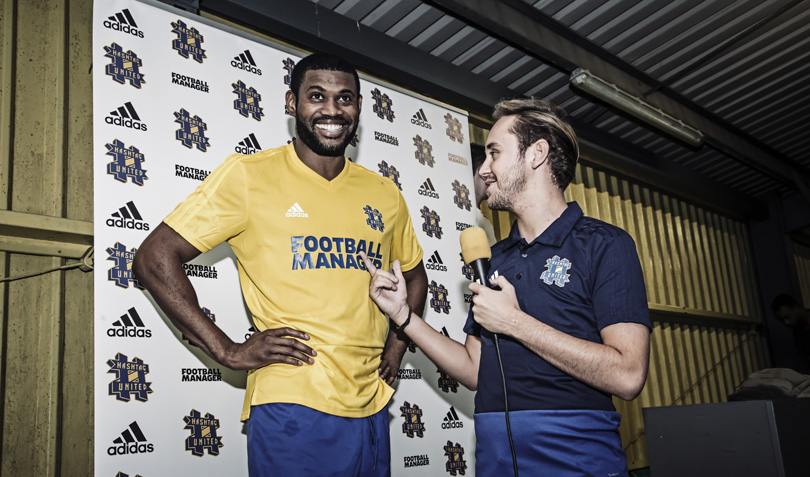
After the game, the club’s content staff hastily erect an advertising backdrop featuring Adidas and Football Manager logos, and interview goalscorer Honesty. The race is then on to edit their mass of footage and upload it to YouTube in a couple of days. It’s a challenge that’s as difficult as the one they face on the pitch. “We used to have a couple of weeks to turn videos around; now it’s a matter of days as we‘ve got one or two games per week,” says Smythe.
Their first episode of the season has had 300,000 hits and counting, but they don’t take their fans for granted. Players spend time chatting to them like pals down the pub and thank them for their support, while Owen holds court with two teenage supporters in the stand.
It’s a refreshingly human approach in contrast to the club-customer experience of top-flight football and it’s that, more than anything else, that explains Hashtag’s appeal to the online masses and their tribal matchday following. “Our fans are part of our storyline,” says Smythe. “Traditional clubs try to engage an existing fanbase with content, but without our content and audience, we’d die.”
They might not be the last to teleport from YouTube to non-league, either. “There are other YouTube teams with big online followings and backing from major brands,” reveals Owen. “If we’re successful I’d be surprised if other clubs don’t try to do the same thing.”
If they were to secure successive promotions, Hashtag United could be a Premier League club in just nine years. So should the big boys be worried? “Who knows how far we can go?” says Owen. “I would never have said we’d sell 34,000 tickets at Wembley or tour America. Bear in mind, most of the team is made up of me and my brother’s mates. Sharing this crazy experience with them is incredible, we’re all having an amazing time and hopefully it continues.”
They’re living the dream, and their fans are living it with them.
This feature originally appeared in the October 2018 issue of FourFourTwo. Subscribe!
